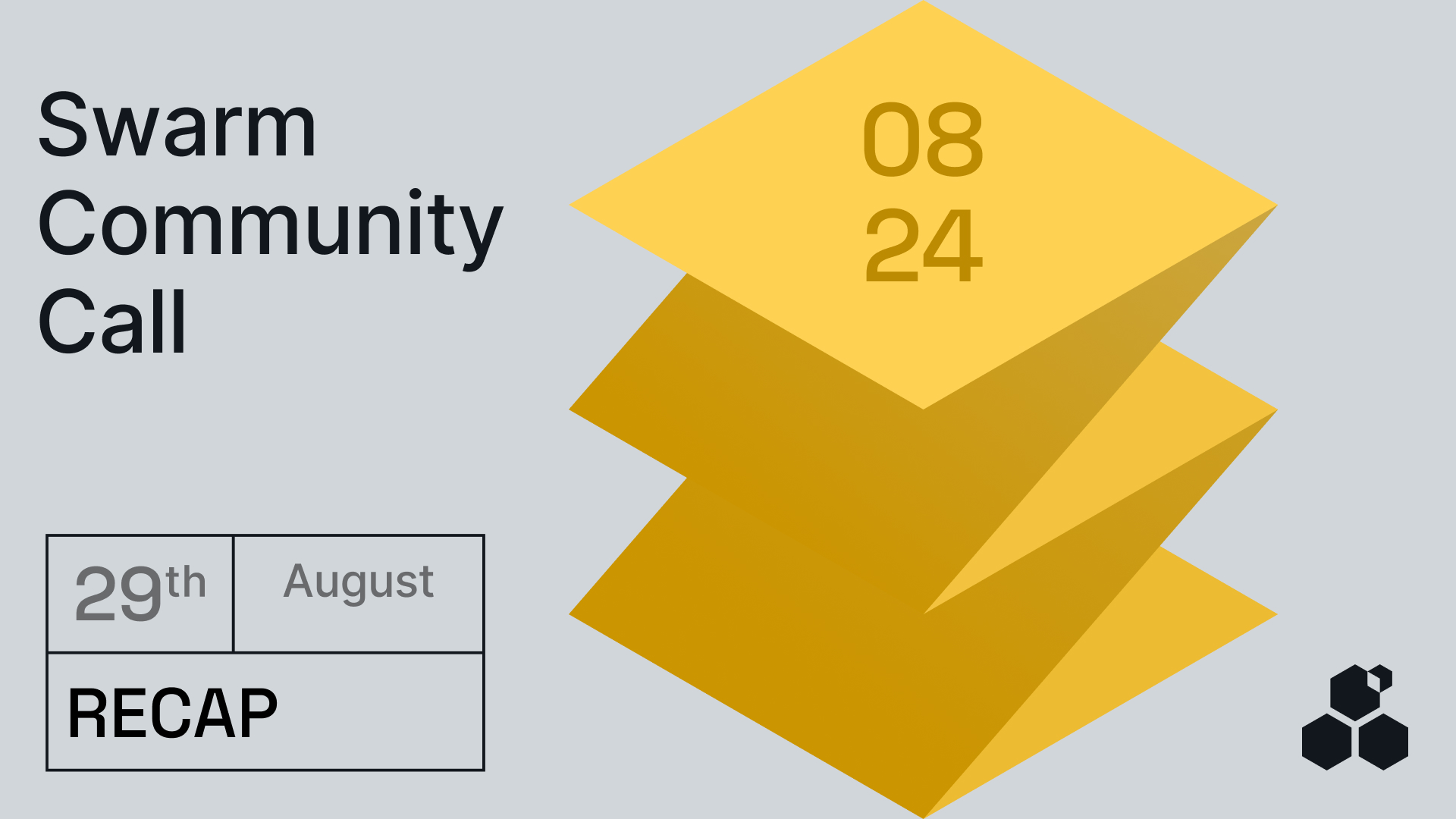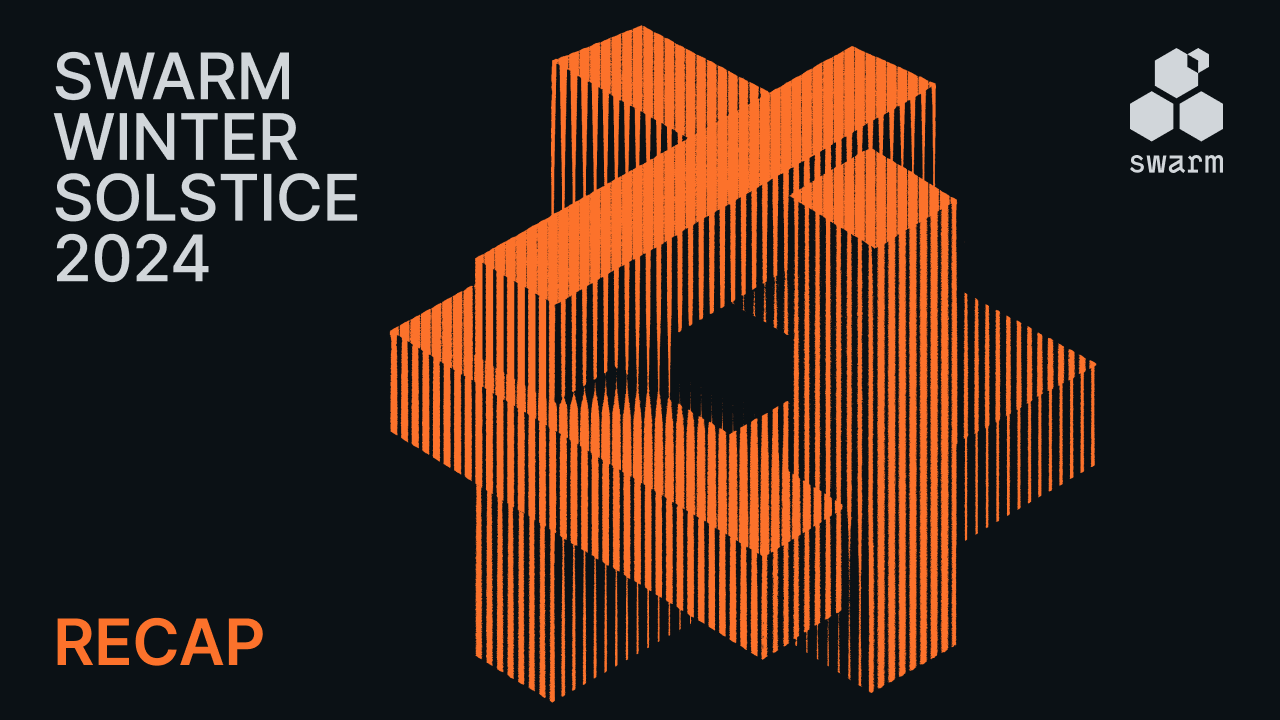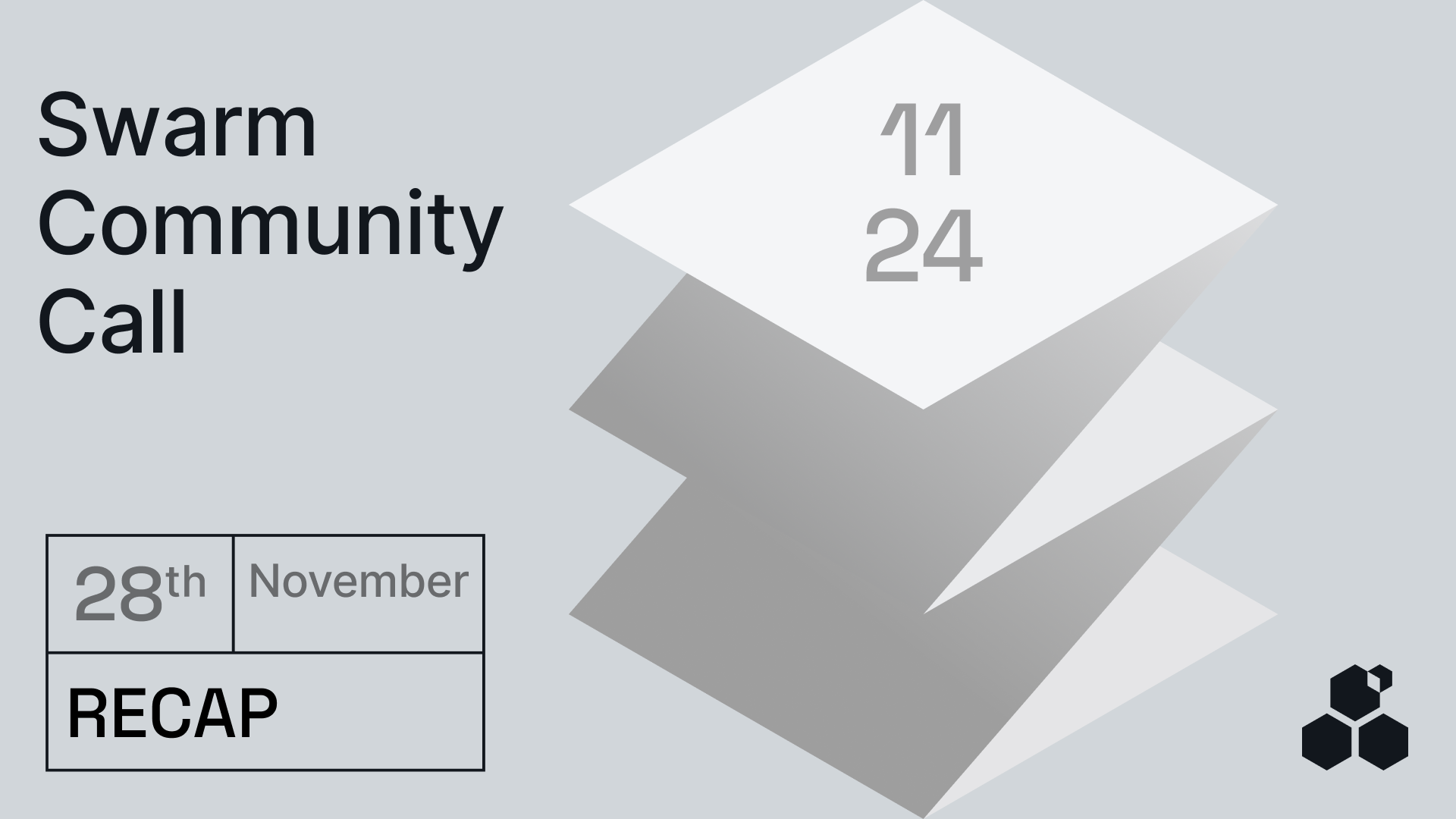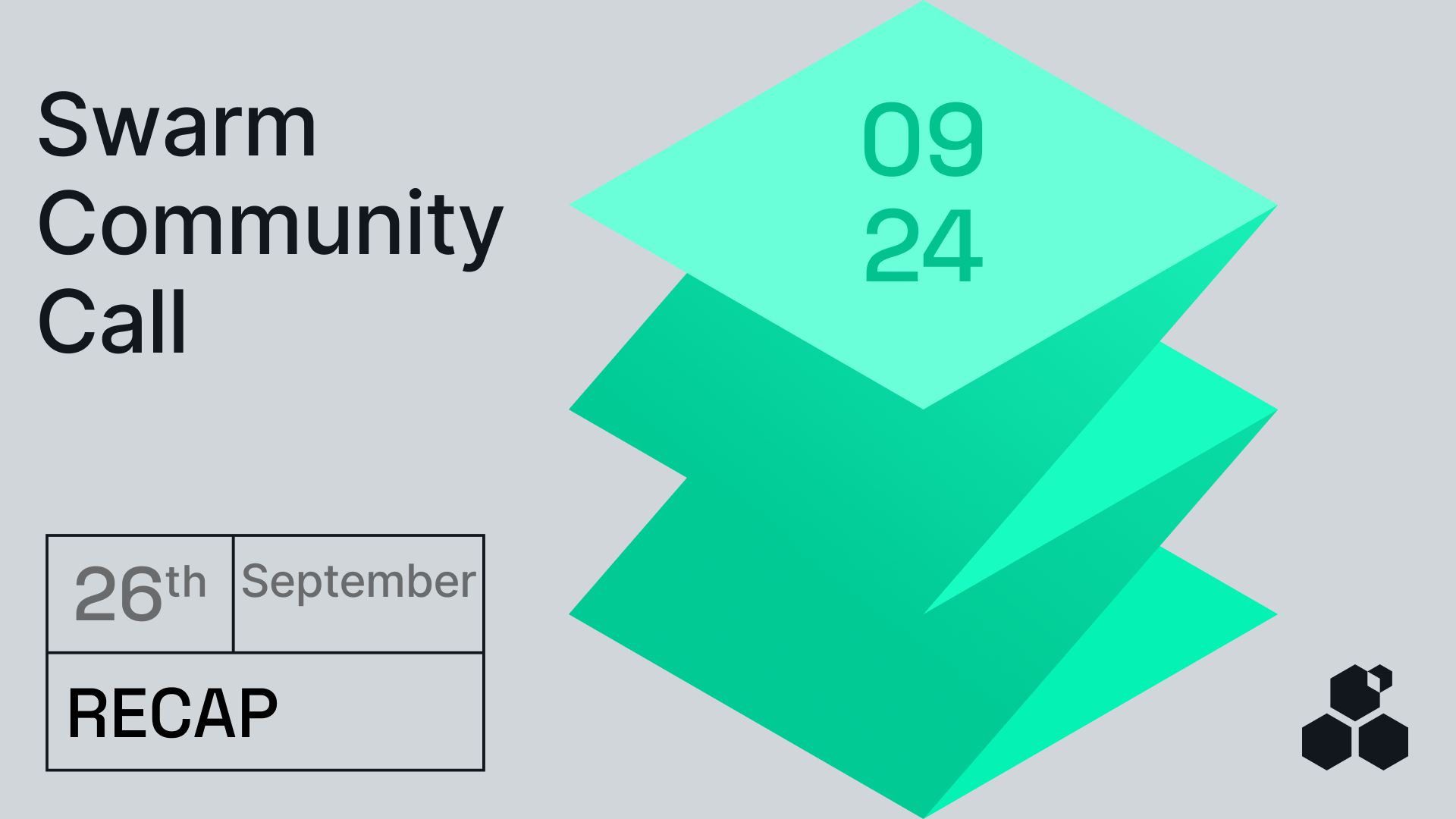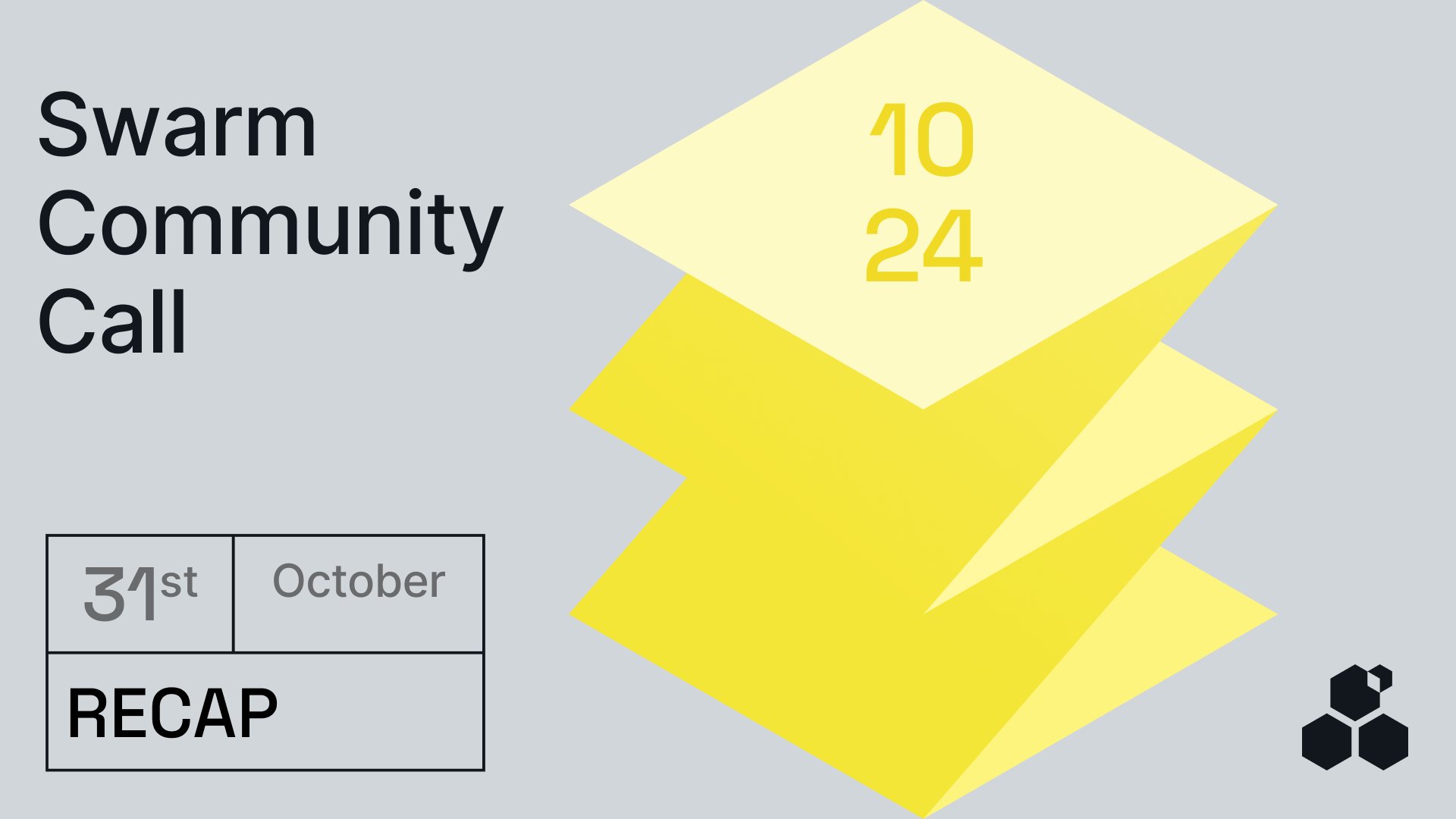Feature-packed Bee 2.2
During the August call, Niki Papadatou took the audience through the new features that are packed in the upcoming Bee 2.2. These include:
- Access Control Tree: This will give users greater control over the confidentiality of their content, ensuring that only whitelisted nodes can access certain resources. The flexibility of the system allows the whitelisted list to be updated as needed, providing dynamic control over access permissions.
- Neighbourhood hopping: Responding to the needs of node operators, the neighbourhood hopping feature allows nodes to move to different neighbourhoods while retaining their stake. This innovation eliminates the need for repeated staking whenever a node is relocated and provides the network with a better node distribution balance.
- Withdrawal mechanism: Alongside neighbourhood hopping, the 2.2 release introduces a new withdrawal mechanism. This feature enables node operators to withdraw the appreciated value of their stakes if the price of BZZ increases in the future. Operators can leave only the minimum required stake in a node and reallocate or withdraw the excess amount. This addition provides greater flexibility and control over node operations and investments.
- Merged Debug and Bee APIs: The release also marks the final step in merging the debug and Bee APIs, with the removal of the old ports that were still supported in version 2.1. Moving forward, only the merged ports will be retained. Node operators are advised to adjust their setups accordingly to align with these changes.
The official release of version 2.2 will also be accompanied by detailed instructions on how to upgrade.
Looking Ahead: Bee 2.3 release and beyond
With the 2.2 release nearing completion, Swarm’s Research and Bee Track are already looking ahead to the next milestone. This upcoming update promises to build on the advancements of 2.2, with three key objectives that are set to enhance the network further:
- Neighbourhood splitting improvements: The criteria for neighbourhood splitting are being refined to ensure that splits occur only after specific conditions are met, contributing to a more efficient and balanced network.
- Price Oracle enhancements: The Bee 2.3 release will extend the network’s incentive mechanisms, moving towards a fairer market model where prices adjust based on supply and demand. For instance, as data volume increases and the number of nodes decreases, prices will rise, encouraging the deployment of additional nodes. Conversely, a surplus of nodes and lower data volumes will lead to price reductions, incentivising the storage of more content on the network.
- Sister neighbourhoods game: Another exciting feature in the pipeline is the Sister neighbourhoods game. This optional feature allows node operators to increase their chances of earning rewards by doubling their reserve and participating in a secondary neighbourhood.
In Focus: Swarm made easy with Swarmy
Máté Smajda demonstrated how to simplify data storage on Swarm with Swarmy. It is designed to make data storage on Swarm as simple and intuitive as possible, functioning much like a traditional file storage service such as Google Drive—but with a key difference. When you upload data via Swarmy, it is seamlessly stored on the Swarm network. You get all of Swarm’s benefits (complete privacy, security and amazing availability), without requiring you to understand any of the intricacies of Swarm.
There’s no need to install or configure any complex systems, manage hosting or worry about buying and maintaining postage stamps. Essentially, Swarmy operates as a regular web application where users can easily upload and download data without needing technical expertise.
For those getting started, signing up for Swarmy is straightforward. After creating a free account with just an email address and verification, new users are directed to set up a subscription. This involves selecting the amount of data you wish to upload to Swarm and the bandwidth for monthly downloads (in GB or TB). After choosing these options and completing the payment process, you can begin uploading files.
Community Talk
A Web3 cloud for the future
This month’s Community Talk showcased two projects. First up was Latitude.sh, a bare metal provider for Web3 companies that lets companies quickly deploy a node. In their demo, Cintia Megalhāes, Victor Chiea and Ricardo Bortolansa showed the audience how using their blueprints, which are just containers for images (in this case a Swarm image), they can deploy a Swarm node in a matter of seconds using only an SSH key.
Solar Punk takes Swarm seriously – impactful engineering and expanded
The second to take the community stage was Sándor Nagy from Solar Punk to present his team’s work. One key success of the team is the establishment of a working partnership with an organisation currently building an application on top of Swarm.
At the recent Swarm Summit, several of these Swarm-based applications were showcased. Among them was an indexing and searching tool that leverages Swarm to enable the search of NFT images. Another notable achievement is the development of a media streaming solution. It is currently in its final stages and will soon be publicly available, allowing anyone to perform live streaming on top of Swarm. The team also successfully tested live HD video streaming on Swarm, which was a significant milestone.
A particularly groundbreaking development is the Bee node running in a browser, which could eliminate the need for any installation when using a light node. Additionally, the team has completed a proof-of-concept for a mobile application, demonstrating a working Bee node on a mobile device. The app, which allows file uploads and downloads, is available as an installable package for testing.
Another important area of development is the above-mentioned Access Control (ACT). It represents Solar Punk’s first major contribution to Swarm node and the wider network. ACT has the potential to open up significant opportunities for business development, as it addresses a critical need for access control—an aspect that is currently lacking in many decentralised systems.
Looking to the future, during Devcon they intend to release “Devcon.buzz,” an app that will enable users to comment and chat based on the talks happening during the event. The team also plans to encourage users of the application to become node operators through a fun and engaging game. More details will be available in the coming months.
Announcements: On the road to Devcon, but first – Bulgaria
The Swarm Foundation will also be making its presence felt. First on the calendar is EthSofia from 17–19 October in Bulgaria. All crypto eyes are now on the upcoming Devcon, which will be taking place in Bangkok, Thailand (12–15 November). The Swarm Foundation has a special surprise that we’ll keep under wraps for now. But rest assured, it will be worth your while.
Discussions about Swarm can be found on Reddit.
All tech support and other channels have moved to Discord!
Please feel free to reach out via info@ethswarm.org
Join the newsletter! .
